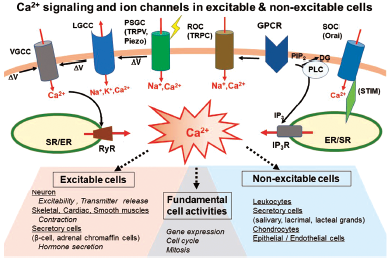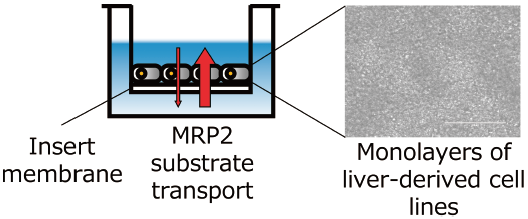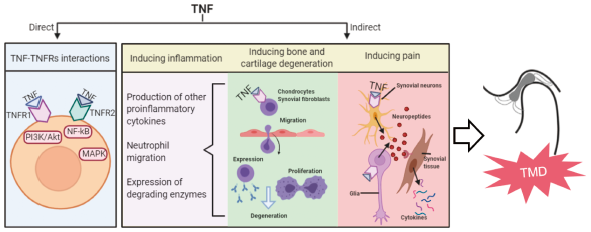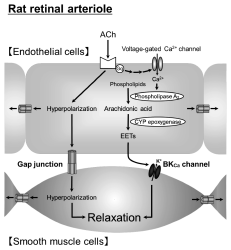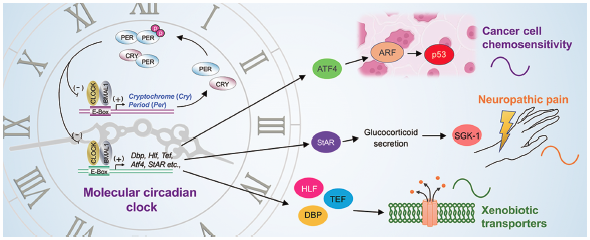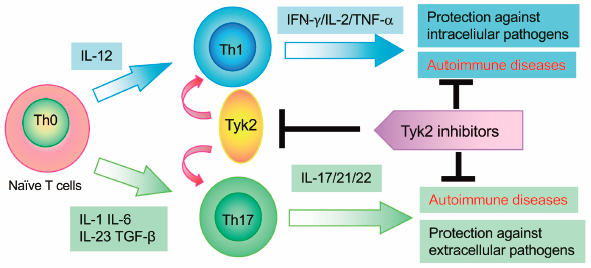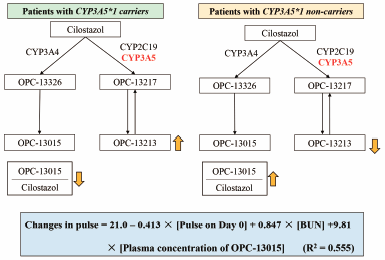-
編集者のコメント
In the lung alveolar epithelial cells, the innate immune response is induced by bacterial peptides such as Tri-DAP via PEPT2 (a peptide transporter)- and NOD1 (an intracellular pattern recognition receptor)-dependent pathway. In this study, corticosteroids such as budesonide were found to suppress PEPT2 function as well as the increased mRNA expression and secretion of interleukin-8 by Tri-DAP, using NCI-H441 cells having human alveolar type II cell-like phenotype. The results suggest that the innate immune response induced by bacterial peptides in the lung alveolar region may be suppressed during the inhaled corticosteroid therapy.
-
編集者のコメント
About the cover: Cellular Ca2+ signaling functions as one of the most common second messengers of various signal transduction pathways in cells and mediates various physiological roles depending on cell-types and their excitability. Among ion channels, Ca2+-permeable channels in the plasma membrane as well as endo- and sarcoplasmic reticulum membranes play important roles in cellular Ca2+ signaling. Ca2+-gated ion channels indicated by the star (★) often crosstalk reciprocally with Ca2+ signals and are central to the regulation of cellular functions. Ca2+-gated ion channel works as a converter of Ca2+ signals to propagative electrical signals and plays key roles in the opposite feedback regulation of Ca2+ signaling in excitable and non-excitable cells.
-
45 巻 (2022) 1 号 p. 34-41Imatinib Mesylate Exerted Antitumor Effect by Promoting Infiltration of Effector T Cells in Tumor もっと読む編集者のコメント
Imatinib mesylate is a potent tyrosine kinase inhibitor. It is known that in addition to targeting the oncogenic drivers, the immune system plays an important role in exerting therapeutic effects of imatinib and restraining the emergence of escape mechanisms. However, its influence on the recruitment of effector T cells into the tumors has not been investigated. Authors found that imatinib significantly enhanced the expression of CD8 T cell-recruiting cytokine genes, leading to antitumor effects, which was dependent on the tumor type. This study elucidated a new mechanism of antitumor immunity induced by imatinib.
-
45 巻 (2022) 1 号 p. 104-113Impact of Gut Microbiota on the Pharmacokinetics of Glycyrrhizic Acid in Yokukansan, a Kampo Medicine もっと読む編集者のコメント
Glycosides are often included as active ingredients in natural medicines. Many glycosides are highly water-soluble, and they are metabolized by intestinal bacteria before being absorbed in the digestive tract. Glycyrrhizic acid (GL), one of the main components of yokukansan, is a glycoside that is metabolized by intestinal bacteria to glycyrrhetinic acid (GA). This study investigated the gut microbiota compositions and pharmacokinetics of GL in yokukansan. The results suggest that oral antibiotics affect the plasma level of GA, and that the blood level of GA changes depending on the gut microbiota composition.
-
編集者のコメント
Toxicological profiles of chemicals have been investigated in rodents, but new alternative methods to evaluate compound safety are being developed worldwide using in silico approaches. Physiologically based pharmacokinetic (PBPK) modeling has the potential to play significant roles in estimating internal chemical exposures. The authors generated three major PBPK model input parameters (i.e., absorption rate constants, volumes of the systemic circulation, and hepatic intrinsic clearances) for chemicals using machine learning algorithms. The input parameters for humans of compounds can be reliability estimated using chemical descriptors calculated using in silico tools for illustrating virtual maximum plasma concentrations and areas under the curve.
-
45 巻 (2022) 1 号 p. 150-153Directional Drug Transport through Membrane-Supported Monolayers of Human Liver-Derived Cell Lines もっと読む編集者のコメント
This report reveals that monolayers of human liver-derived cell lines grown on a membrane exhibit directional transport, i.e. efflux transport of a substrate of multidrug resistance-associated protein 2 (MRP2). The transport was suppressed by an MRPs inhibitor, supporting the idea that MRP2 is the primary mediator of directional transport. The advantage of this system is its potential to quantitatively evaluate biliary excretion of MRP2 substrates in vitro. The assay system may therefore be utilized for the screening of biliary excretion drugs and for investigating the hepatotoxicity of candidate drugs.
-
44 巻 (2021) 12 号 p. 1801-1809The Role of TNF-α in the Pathogenesis of Temporomandibular Disorders もっと読む編集者のコメント
This article concludes the underlying responses of inflammation in temporomandibular disorder(TMD), a complex and common oral dentofacial disease. One of the most involved inflammatory cytokines--TNF-α, has effects on TMD and its inflammation. These effects are summarized comprehensively and explicitly as triggering immune responses, degenerating bone and cartilage and mediating pain of temporomandibular joint. This review gives an insight into this connection between TNF-α and TMD, which may highlight TNF-α as a new therapeutic target for TMD treatment and therefore provide new insight for therapeutic intervention for TMD.
-
44 巻 (2021) 12 号 p. 1810-1818Possible Therapeutic Applications of Targeting STAP Proteins in Cancer もっと読む編集者のコメント
The signal-transducing adaptor protein (STAP) family, including STAP-1 and STAP-2, contributes to a variety of intracellular signaling pathways. STAP proteins bind to IκB kinase complex, BRK, STAT3, and STAT5, during tumorigenesis and inflammatory/immune responses. STAP proteins positively or negatively regulate critical steps in intracellular signaling pathways through individually unique mechanisms. In this review, the authors describe that STAP proteins are involved in the development and/or progression of some types of malignancies. The authors further describe the possible therapeutic applications of targeting STAP proteins in cancer.
-
編集者のコメント
Gamma-glutamylcysteine (g-EC) has antioxidant properties similar to those of glutathione (GSH) and acts as its precursor in mammals. In this paper, the reaction conditions of the phytochelatin synthase-like enzyme derived from Nostoc sp. (NsPCS) which hydrolyzes GSH to g-EC was optimized, resulting that high yield conversion from 100 mM GSH to g -EC was achieved in the absence of ATP and other additives. These results suggest that the NsPCS reaction has great potential for the low-cost industrial-scale production of g-EC from GSH.
-
編集者のコメント
Acetylcholine (ACh) stimulates the production of cytochrome P450 (CYP) epoxygenase-derived epoxyeicosatrienoic acids (EETs), which activate large-conductance Ca2+-activated K+ (BKCa) channels. The article by Mori et al. provides evidence suggesting that ACh-induced hyperpolarization of endothelial cells transmits to adjacent smooth muscle cells via myoendothelial gap junctions. ACh can also facilitate gap junctional communication between endothelial cells and/or between smooth muscle cells. These pathways contribute to the hyperpolarization and relaxation of vascular smooth muscle cells in rat retinal arterioles.
-
編集者のコメント
Diastolic dysfunction is a major cardiac deficit underlying heart failure accompanying hypertension, coronary artery disease, and diabetes mellitus and is partly mediated by impaired myocardial relaxation and Ca2+ handling. Therapeutic agents targeting diastolic dysfunction are not yet clinically available. Quercetin is one of the major flavonoid compounds contained in fruits and vegetables. The authors examined the lusitropic effect of quercetin on isolated ventricular myocardial tissue preparations from normal and streptozotocin-induced diabetic mice and showed that quercetin accelerated myocardial relaxation through activation of the sarco/endoplasmic reticulum Ca2+-ATPase. This finding may lead to the development of novel therapeutic agents of natural origin.
-
44 巻 (2021) 11 号 p. 1577-1584Chrono-Pharmaceutical Approaches to Optimize Dosing Regimens Based on the Circadian Clock Machinery もっと読む編集者のコメント
The sensitivity to drugs and their disposition are changed depending on the circadian time. Hence, choosing appropriate times of day to administer drugs enables to enhance the therapeutic index of pharmacotherapy. On the other hand, various disease conditions also exhibit circadian changes in symptom intensity. Several therapeutic approaches are facilitated by the identification of chemical compound targeted to key molecules that cause circadian exacerbation of disease events. The author describes the current understanding of the role of the circadian biological clock in regulating drug efficacy and disease condition, and also presents ‘chrono-pharmaceutical’ strategy for treatment of diseases and drug development.
-
44 巻 (2021) 11 号 p. 1585-1592Therapeutic Advantage of Tyk2 Inhibition for Treating Autoimmune and Chronic Inflammatory Diseases もっと読む編集者のコメント
Tyrosine kinase 2 (Tyk2) is a member of the Janus family of protein tyrosine kinases (JAKs). Tyk2 associates with interferon (IFN)-α, IFN-β, interleukin (IL)-6, IL-10, IL-12, and IL-23 receptors and mediates their downstream signaling pathways. The authors summarize that Tyk2 plays crucial roles in the differentiation, maintenance, and function of T helper 1 (Th1) and Th17 cells and that its dysregulation in autoimmune and/or inflammatory diseases using Tyk2-deficient mice and cells. The authors further describe that Tyk2 inhibition has great potential for clinical application in the management of a variety of immune-relating diseases.
-
編集者のコメント
This Current Topics includes 5 reviews, and the authors for individual reviews were invited to contribute papers updating/improving readers’ understanding of the nuclear receptors- and drug-metabolizing enzymes-mediated inter-individual differences. Nuclear receptors (e.g., ERα/β, PPARβ/δ, and RORα) are basically ligand-inducible and are known to be involved in the regulation of numerous physiological processes. At the post-transcriptional level, some microRNAs are involved in the regulation of CYP3A protein expression. In addition, at the post-translational levels, there are functional protein-protein interactions between different kinds of drug-metabolizing enzymes i.e., P450 and UGT, which results in modulation of the enzyme(s) activities.
-
編集者のコメント
Cilostazol is metabolized to two active metabolites in humans. This study investigated the influence of the plasma concentrations of cilostazol and the metabolites on pulse rate in patients with cerebral infarction. Polymorphisms of metabolic enzymes significantly influenced plasma disposition of OPC-13015, a metabolite by CYP3A4, and OPC-13213, another metabolite by CYP3A5 and CYP2C19. A multiple regression model, consisting of factors of the plasma concentration of OPC-13015, levels of blood urea nitrogen, and pulse rate at the start of cilostazol therapy explained 55.5% of the interindividual variability of the changes in pulse rate before and after the treatment.
-
編集者のコメント
Aniline and its dimethyl derivatives reportedly become haematotoxic after metabolic N-hydroxylation of their amino groups. The elimination rate of 3,5-dimethylaniline based on rat plasma versus time curves was rapid compared with that of 2,6-dimethylaniline after single oral doses of 25 mg/kg. The areas under the curve of unmetabolized (remaining) dimethylaniline derivatives estimated using pharmacokinetic models showed an apparently positive correlation with the reported lowest-observed-effect levels for haematotoxicity of these chemicals. These results suggest that the presence of a methyl group at the C2-positon may generally suppress fast metabolic rates of dimethylaniline derivatives that promote metabolic activation reactions at NH2 moieties.
-
44 巻 (2021) 10 号 p. 1349-1356trans-Fatty Acids as an Enhancer of Inflammation and Cell Death: Molecular Basis for Their Pathological Actions もっと読む編集者のコメント
trans-Fatty acids (TFAs) contained in processed foods, such as elaidic acid, have been associated with various diseases including cardiovascular and neurodegenerative diseases based on accumulating epidemiological and clinical evidence. However, the underlying etiology is poorly understood. In this review article, the author summarizes his series of studies providing novel insights into the molecular basis of TFA toxicity that can well account for the pathological mechanisms, which will hopefully lead to the development of novel preventive and therapeutic strategies for TFA-related diseases.
-
44 巻 (2021) 10 号 p. 1357-1363Microbial Rhodopsins as Multi-functional Photoreactive Membrane Proteins for Optogenetics もっと読む編集者のコメント
Various stimuli such as light, heat, pressure and chemicals have been utilized to facilitate understanding of biological activities. Among those stimuli, light has the advantage of a high spatiotemporal resolution that allows for the precise control of biological activities. Seven-transmembrane protein rhodopsin from microorganisms (called microbial rhodopsin) absorbs visible light and serves as a model for membrane-embedded proteins, for photoactive proteins and as a fundamental tool for optogenetics, a technology to control biological activities with light. This review article introduces and summarizes the molecular basis of representative microbial rhodopsin molecules and their applications for optogenetics.
-
編集者のコメント
These reviews summarize the latest research on the regulatory mechanisms of vascular permeability and its control technology. Blood vessels dynamically change their permeability to control the movement of substances and cells between blood and tissues, thereby contributing to the maintenance of homeostasis and development of pathological conditions. Vascular permeability is increased in various diseases such as infections, inflammatory diseases, and tumors, exacerbating their symptoms. In contrast, the permeability of cerebral blood vessels is kept low to protect the brain. Elucidating the mechanisms regulating vascular permeability and developing technologies to control it will contribute to producing novel therapeutic strategies against various intractable diseases.
-
編集者のコメント
Sunitinib is an oral multi-targeted tyrosine kinase inhibitor approved for treating metastatic renal cell carcinoma. Authors successfully developed the first specific and highly sensitive competitive enzyme-linked immunosorbent assay (ELISA) for sunitinib that is not influenced by the primary metabolite N-desethyl sunitinib or by light-induced geometric isomerization using a polyclonal antibody against part of the structure of sunitinib and herein report the technique. The developed ELISA may have adequate sensitivity and specificity to quantify sunitinib for therapeutic drug monitoring and pharmacokinetic studies in animals and humans.

